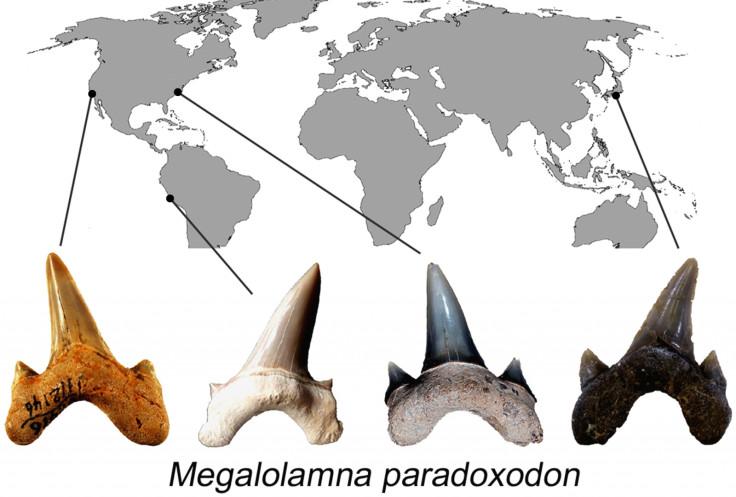Prehistoric shark as big as today's 'great whites' roamed oceans 20 million years ago
The newly discovered species, now extinct, was described from fossilised teeth found around the world.

Scientists have discovered a new type of prehistoric shark, which would have roamed the planet's oceans around 20 million years ago. It would have been an impressive marine predator, roughly the size of today's great white sharks.
The research team, from the University of DePaul in Chicago, have described the species based on fossilised teeth found at five different locations around the world – in the US, Peru and Japan. The biggest tooth measured 4.5cm.
The extinct shark lived during the early Miocene, and was given the name of Megalolamna paradoxodon. It has been described as belonging to a group known as Lamniformes, which includes modern-day great white and mako sharks.
The size of the fossils suggest the largest specimens could have reached 4 m in length, similar to today's white sharks.
"It's quite remarkable that such a large Lamniform shark with such a global distribution had evaded recognition until now, especially because there are numerous Miocene localities where fossil shark teeth are well sampled," said Kenshu Shimada, lead author of the study, published online in the journal Historical Biology.

Further research on the fossils has revealed that Megalolamna paradoxodon specifically belonged to the otodontidae family, an extinct family of sharks within the Lamniformes. This indicates the new species is closely related to an iconic extinct superpredator, the megalodon – a huge prehistoric shark that could measure up to 10m.
Megalolamna's teeth were a bit different, however, similar to the oversized teeth of the modern-day salmon shark. The grasping-type front teeth and cutting-type rear teeth likely used to seize and slice medium-sized fish, making Megalolamna paradoxodon an important predator of the world's ancient oceans.
One mystery remains: it is not clear when Megalolamna split from its closest relative. The shark appears to have emerged suddenly in the geologic record, with a yet unresolved nearly 45-million-year gap from when it possibly split from its closest relative – with no fossils recovered from that period.
© Copyright IBTimes 2025. All rights reserved.






















